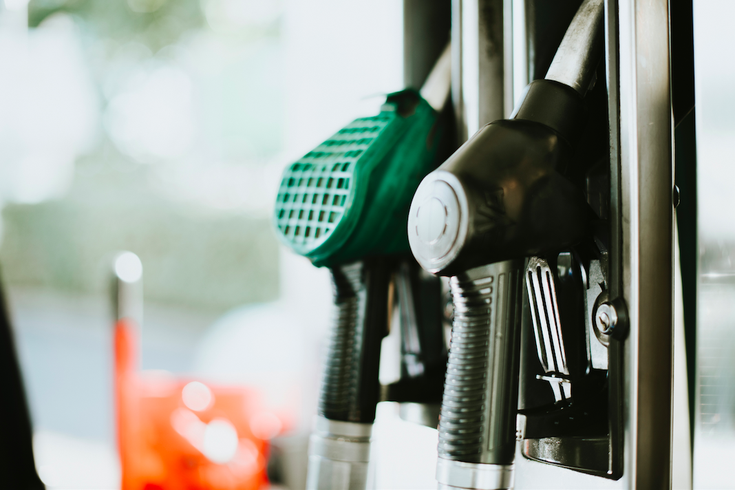
May 06, 2022
 Source/Pexels.com
Source/Pexels.com
The average price of a gallon of regular unleaded gas reached $4.56 in the Philadelphia area on Friday, a record high, according to AAA.
The price of a gallon of gas jumped to an average of $4.56 in the Philadelphia region on Friday, setting a new record in advance of the busy summer driving season.
Data collected by AAA showed regular unleaded gas in Philadelphia and the surrounding counties is up from $4.24 per gallon a month ago and as low as $3.05 a year ago. Diesel fuel climbed to a record of $6.27, up from $3.46 a year ago.
In Pennsylvania as a whole, a gallon of regular unleaded gas stood at an average of $4.46 on Friday and the nation's average is $4.28, with the highest prices seen in Western states. A year ago, the nation averaged $2.94 for a gallon of regular unleaded gas.
The rising gas prices reflect ongoing economic pressures from Russia's invasion of Ukraine, a surge in demand as the COVID-19 pandemic wanes, weakened supply networks and insufficient production that has become a focus of the Biden administration and Democratic members of Congress.
In the middle of March, gas prices in the Philadelphia area climbed to an average of $4.41 per gallon, but had dipped back down to about $4.17 in early April before the current spike, according to AAA data.
In New Jersey, prices are a bit better at an average of $4.37 per gallon of regular unleaded gas and $6.17 for a gallon of diesel.
To contain fuel costs, the White House has moved to release a record one million barrels of oil per day from the country’s strategic reserves, in addition to allowing the sale of gasoline with a 15% ethanol blend this summer, when it's usually banned.
But as the impact of high fuel prices is felt across the economy, the Biden administration also has supported Congressional efforts to spur domestic oil production.
Legislation under consideration in Congress would target manipulation of the oil market by producers, who have profited immensely in the last year. At an April 6 House hearing, six companies, including ExxonMobil and Chevron, were reported to have made a combined $77 billion in profits during the previous year, according to the Associated Press.
“Here’s the bottom line: They’re not using the money for domestic energy production,” Senate Majority Leader Chuck Schumer, D-NY, said in late April. “They’re using it for stock buybacks. They’re using it to make their shares go up. We wouldn’t be here if the oil companies were using it to make the American consumer’s price cheaper.”
Schumer and other Democrats have called for strengthening the power of the Federal Trade Commission to address price manipulation and price gouging, including steep penalties for unfair competition or market distortions. Some also have suggested a windfall tax on oil profits, which has not garnered much support.
Oil and gas executives have countered that they are dealing with a global market and don't set the price of a barrel of crude oil, which jumped to $111.50 this week, a high since late March.
Republicans have resisted the Democratic proposals and instead call for increased domestic production. The Biden administration resumed leasing of public land for oil and gas drilling last month, but wants accountability to meet production targets from companies that take advantage of this. The move, which raised royalty rates for lessees, has faced criticism both from Republican law makers and environmental groups.
Some states have paused gas taxes in an effort to help consumers in the short-term. Discussion about a pause on the 18.4 cent per gallon federal gas tax has not gained much traction due to doubts that doing so will reach consumers.
“We’ve seen a notable increase in our travel bookings in early spring, which is a strong indication of what to expect for summer,” Debbie Haas, vice president of travel for AAA, told Transport Topics. “Despite inflation and higher gas prices, people want to travel and we believe they will find ways to do so without breaking their budget.